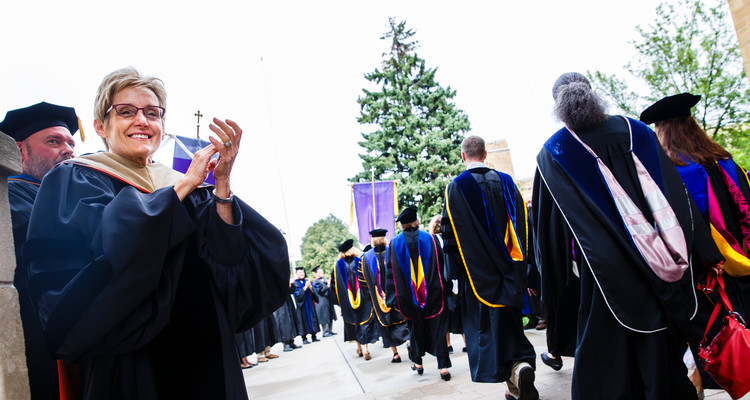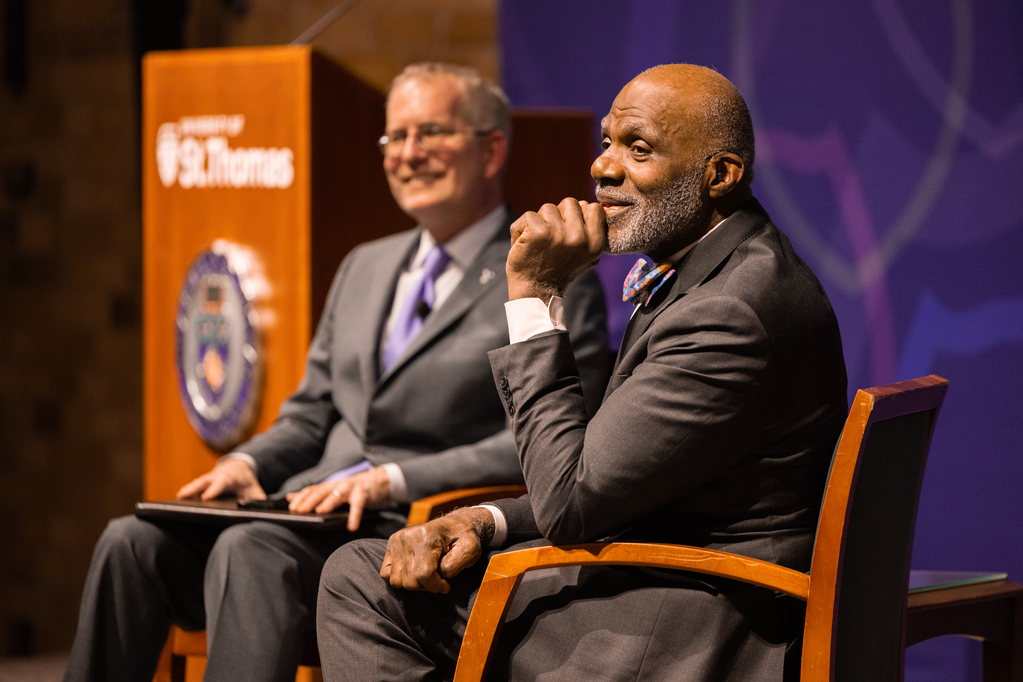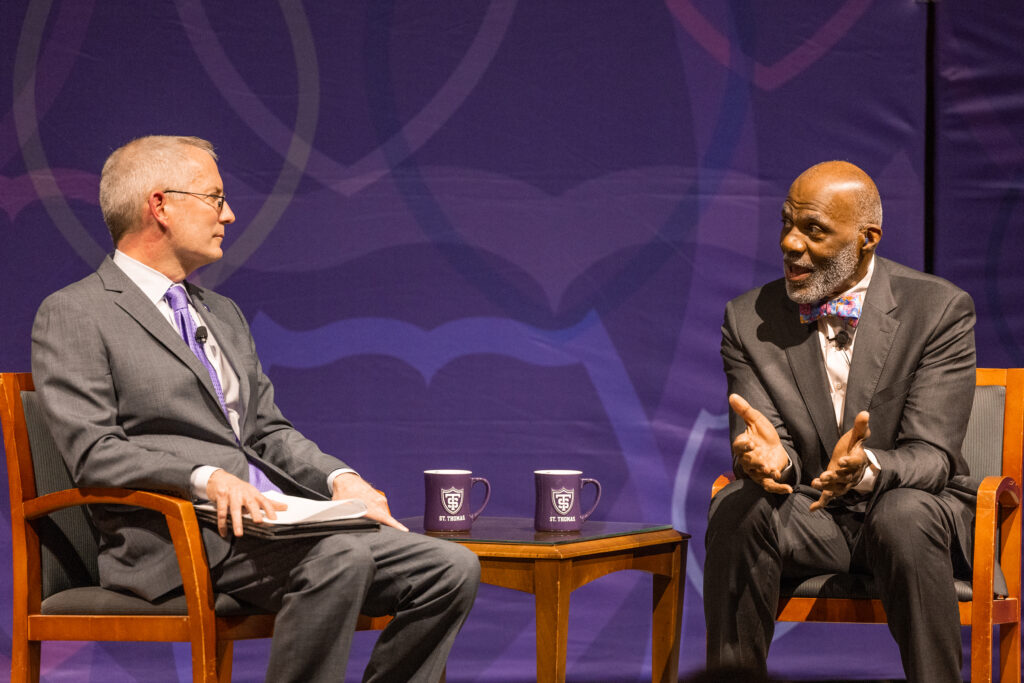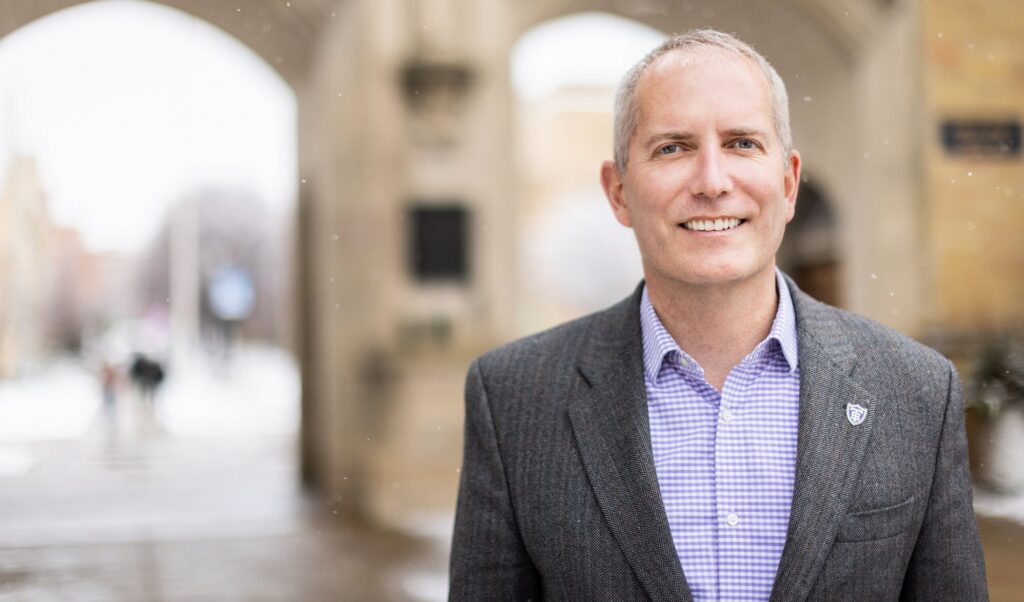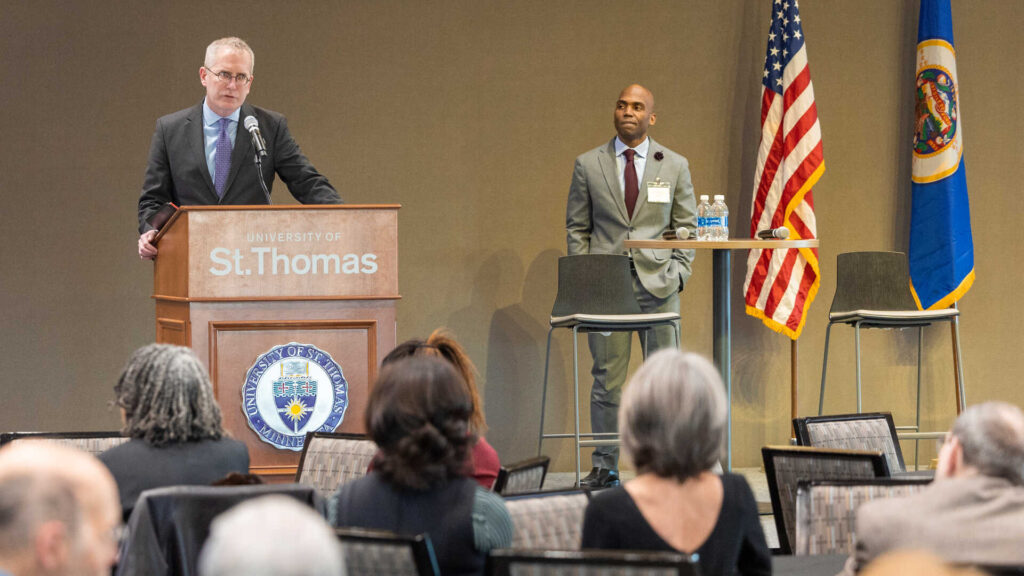A dramatically changing world makes it imperative that St. Thomas continue to anticipate and adapt to rapidly expanding industries in preparing students for the future, President Julie Sullivan said Tuesday.
Sullivan shared her vision of a St. Thomas education in her fourth academic convocation address to an O’Shaughnessy Educational Center auditorium audience of faculty, staff and administrators.
“Our jobs are to ensure our future alumni have the capacity to lead fulfilling and prosperous lives and to make sustainable differences in their futures, in their workplaces and in their communities,” Sullivan said in her 30-minute address. “We want to look into the future and see happy, productive alumni advancing the common good and improving the lives of others.”
St. Thomas must provide an education of the quality so that alumni in 20, 30 or 50 years will tell future presidents of the university what she hears today: “Stories, stories and more stories about how St. Thomas transformed their lives and meaningfully contributed to the people they have become.”
Future careers and jobs will be transformed by the enhanced power of digitization, she said, and will involve more technology, incorporate more data, be more global and occur in a more diverse environment. “And everything,” she added, “will be more interconnected.”
Sullivan cited three industries – robotics, big data and genomics – that will change the nature of work and require new forms of social and employment contracts. Consequently, she said, talent will be a critical factor for innovation, competition and growth in an “on-demand” economy.
She pointed to three forms of intelligence as critical for future success:
- Contextual intelligence is the ability to understand context and match it to technology to create innovation, and two hallmarks of a liberal education – the humanities and the social sciences – always will help us understand context.
- Emotional intelligence involves self-awareness, self-motivation, empathy and social skills, all of which are engendered by a St. Thomas education.
- Ethical intelligence “is our moral and collectiveness consciousness,” she said, “grounded in our sense of shared purpose and our commitment to shared prosperity. All stakeholders will have a role in ensuring innovation is directed to the common good.”
Sullivan said the integrated liberal, technical and professional education now present in undergraduate and graduate programs also is reflected in efforts such as “St. Thomas 2020,” the university’s strategic plan, and the work of task forces such as Educating for the Future.
“We provide this integrated education through a values-based lens, and in our case, it’s a faith-based lens,” she said. The lens is inspired by Catholic intellectual tradition – pursuing truth through the integration of faith and reason – and by Catholic social thought, which is grounded in principles such as the dignity of every human person and solidarity as one human family.
“It is these principles,” she said, “that form the foundation for the mission-based outcome of our education: Think. Act. Work. All for the common good.”
